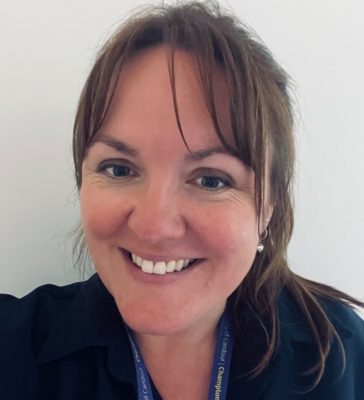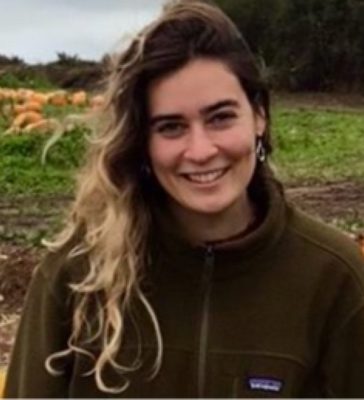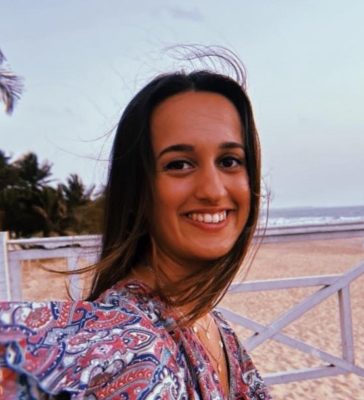
Rebecca Cave
Current Employer/Organisation Name
Royal Cornwall Hospitals NHS Trust
What have you been doing since leaving Exeter, and what are you doing now?
When I took a year out of work to study for my MPH I was the Service Manager for Breast Surgery & Haematology at the Royal Cornwall Hospitals NHS Trust (RCHT). After graduation, I went to work in Strategy at RCHT and established a health inequalities improvement programme for the Trust in partnership with the Chief Medical Officer. In 2022 I approached Public Health Cornwall to partner with us in a project to improve early cancer diagnosis rates in the Gypsy, Roma & Traveller communities across Cornwall and we have subsequently presented this project to national audiences, including at the Royal Society of Medicine and Imperial College London. I am now moving into a new management role in Acute & Emergency Medicine where I hope to identify and act on opportunities across our unplanned care pathways for health equity improvement.
Why did you choose this career? And what do you enjoy most about your work?
My career in healthcare began by accident. Having grown up in Cornwall, I feared not having the career opportunities that living in a city would present so when I finished my undergraduate degree I applied for roles a little haphazardly in search of any form of graduate employment. I was lucky enough to be appointed into a junior management role at RCHT initially, and over the following 15 years I have worked across a range of roles and organisations within the Cornish healthcare system. I am an inherent hard-worker and I love that working for the NHS means my to-do list is never done; there is always more to do or someone else who needs some support. I have been able to seek out roles and working patterns to suit my personal needs as my home-life has evolved over the years, and I have continued to develop a broad range of skills from data interpretation to managing inter-personal conflict. Working in a resource-constrained environment can feel demoralising at times, but it forces us to be brave and dynamic with our decision-making, leaning on the various experts within our teams to find the best solutions for our patients and colleagues.
What did you enjoy most about your programme and what was the biggest highlight?
Studying Public Health during the unfolding COVID-19 pandemic gave us all lived experience of many of the issues we were studying, a really unique opportunity. It was really useful having a-synchronous learning throughout the week with online/face to face teaching on Fridays. I was able to study at my own pace throughout the week and revisit lectures I found harder to absorb without disrupting the learning of fellow students. The programme gave us great variety with modules ranging from Analytics to Leadership.
What did you enjoy most about studying here?
I enjoyed the diversity of the teaching team, including the visiting lecturers for very specialist topics. Everyone was incredibly friendly and helpful, particularly my tutor who spent time with me regularly to offer support and guidance. Despite unexpectedly needing to study largely online due to the pandemic, I still felt a part of the Exeter community and would choose to study here again without question.
Why did you choose to study at Exeter?
I wanted to study in the South West as I would need to be within a commutable distance from home. The University of Exeter has an incredible reputation for excellence in teaching and I was thrilled to find a course which met my academic aspirations, would only require one day per week of face to face attendance, as well as being eligible for funding through a Masters loan. I graduated with a distinction which I attribute to the high quality teaching and excellent support consistently provided throughout the course.
What skills and experiences have been most useful for your career?
Working alongside junior doctors at an earlier stage of their learning was really insightful and helped me to understand their journey to the hospital workplace better. As a non-clinician, this course was my first opportunity to study research papers and learn how to critically appraise evidence in a clinical context. I continue to use my learning in behaviour change and planetary health to influence how I manage people and prioritise resource.
What advice would you give to a current student who wishes to pursue your career?
Don’t wait for the perfect opportunity to come along, dive in to a career and start learning. Don’t expect to be an expert on day one, but listen to those around you and pay attention to their perspectives as they often have an abundance of wisdom that has taken years to build. Be prepared to work hard, but know that every ounce of effort goes towards getting a patient treated and back home with their family.
What are your plans for the future?
I hope to continue my career in healthcare for the rest of my working life. I hope that journey will be within the NHS, however I am excited at the prospect of working outside of the NHS one day, perhaps even abroad (once my children can cook their own dinners!).

